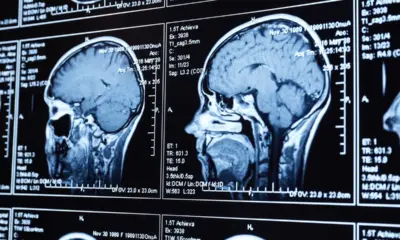Science
Physicist Unveils Limits of Precision in Quantum Thermal Machines

A recent study led by Dr. Maria V. Santos at the University of Cambridge has established critical limits on the precision of quantum thermal machines. These innovative devices utilize principles of quantum mechanics to convert energy into usable work or cooling, serving functions similar to traditional heat engines and refrigerators. The findings, published on July 15, 2023, provide new insights into the efficiencies and operational boundaries of these advanced technologies.
Quantum thermal machines operate based on the principles of quantum thermodynamics, a field that explores how quantum effects influence energy transfer and conversion. The research highlights that while enhancing the reliability of these machines to consistently produce specific thermodynamic processes is feasible, it comes with significant trade-offs. As machines become more precise, they tend to generate wasted heat or require additional energy inputs, which can diminish overall efficiency.
The study builds on established thermodynamic theory, particularly the Second Law of Thermodynamics, which states that energy transformations are not completely efficient. Dr. Santos’s team utilized theoretical models to analyze how quantum fluctuations impact the operational stability of thermal machines. Their results indicate a fundamental limit to the precision achievable in energy conversion processes, regardless of advancements in technology.
Understanding these limitations is crucial as researchers and engineers strive to design more efficient quantum thermal machines. The implications extend to various applications, including energy generation, refrigeration, and climate control technologies. By acknowledging the inherent trade-offs in precision, developers can make more informed decisions regarding the design and implementation of these systems.
In a statement, Dr. Santos emphasized the significance of the findings: “Our work highlights the delicate balance between precision and efficiency in quantum thermal machines. By understanding these constraints, we can better navigate the challenges of developing future technologies that harness quantum mechanics for practical applications.”
This research not only advances the field of quantum thermodynamics but also opens new avenues for exploration. As the demand for energy-efficient solutions grows, the insights gained from this study may prove invaluable in driving innovation across multiple sectors. The quest for optimizing quantum thermal machines is likely to continue, with ongoing research aimed at overcoming the limitations identified in this groundbreaking work.
-

 Technology4 months ago
Technology4 months agoDiscover the Top 10 Calorie Counting Apps of 2025
-

 Health2 months ago
Health2 months agoBella Hadid Shares Health Update After Treatment for Lyme Disease
-

 Health3 months ago
Health3 months agoErin Bates Shares Recovery Update Following Sepsis Complications
-

 Technology4 weeks ago
Technology4 weeks agoDiscover 2025’s Top GPUs for Exceptional 4K Gaming Performance
-

 Technology2 months ago
Technology2 months agoElectric Moto Influencer Surronster Arrested in Tijuana
-

 Technology4 months ago
Technology4 months agoDiscover How to Reverse Image Search Using ChatGPT Effortlessly
-

 Technology5 months ago
Technology5 months agoMeta Initiates $60B AI Data Center Expansion, Starting in Ohio
-

 Technology4 months ago
Technology4 months agoRecovering a Suspended TikTok Account: A Step-by-Step Guide
-

 Health4 months ago
Health4 months agoTested: Rab Firewall Mountain Jacket Survives Harsh Conditions
-

 Lifestyle4 months ago
Lifestyle4 months agoBelton Family Reunites After Daughter Survives Hill Country Floods
-

 Technology3 months ago
Technology3 months agoUncovering the Top Five Most Challenging Motorcycles to Ride
-

 Technology4 months ago
Technology4 months agoHarmonic Launches AI Chatbot App to Transform Mathematical Reasoning





















